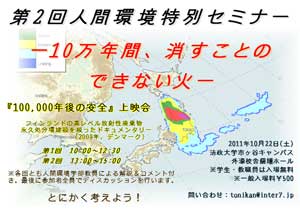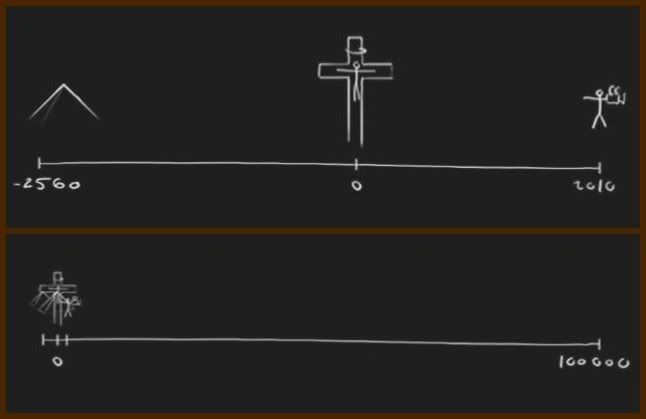International Symposium on
Exploring our Sustainable Future
Socio-economic and Cultural Transfiguration and the Systemic Sustainability under the Globalization Dynamics: beyond 3.11.
U Thant International Conference Hall, 3rd floor, UN House 5-53-70 Jingumae, Shibuya-ku, Tokyo
November 20, 2011
Japan, having hardly recovered from the damage of the global financial crisis, was shaken again by the devastating East Japan Earthquake Disaster and the Fukushima nuclear plant crisis. The nation-state of Japan faces major challenges in regenerating the sustainable future beyond this “dual” crisis and under the mighty dynamics of globalization.
Globalization dynamics have been transfiguring overall politico-economic and social systems globally for the past three decades. Their far-reaching impacts affect almost all aspects of political and socio-economic spheres, and even those of culture, thoughts and ideology. The globalization of firms, finance and information, together with shifts in governmental functions toward neoliberalism, have constituted the major driving forces of globalization dynamism. These have brought about many problems and have even revealed the systemic instability of global politico-economic orders, as has been shown by the recent global financial and economic crisis originating in the U.S. An all-out institutional restructuring seems to be inevitable, globally and locally, which constitutes an epochal transformation of the politico-economic and social systems in the modern world.
This symposium aims to elucidate globalization dynamics and to explore ways to regenerate our sustainable future, especially beyond Japan’s “dual” crisis. A special emphasis will be placed on the local and regional community level in the context of the complex and multi-layered new politico-economic nexus created globally and locally by globalization dynamics. In this sense, the symposium constitutes an important part of the comprehensive research project currently being undertaken by the Institute for Sustainability Research and Education (ISRE), Hosei University: “Synthetic Elucidation of the Socio-economic and Cultural Transformation and the Systemic Sustainability under the Globalization Dynamics.”
*Date: November 20, 2011*Venue: U Thant International Conference Hall, 3rd floor, UN House Jingumae, Shibuya-ku, Tokyo
*Speakers and Panelists:
- Dr. Tetsuji Kawamura, Professor of the Faculty of Economics and the Graduate School of Economics (Former Dean), Hosei University, Japan
- Dr. Saskia Sassen, Professor of Department of Sociology, Columbia University, USA
- Dr. Sunanda Sen, National Fellow of Council of Social Science Research, India
- Dr. Suwattana Thadaniti, Associate Professor Emeritus, Faculty of Architecture, Kasetsart University, Thailand
- Dr. Armando Montanari, Professor, Faculty of European, American and Intercultural Studies, Rome Sapienza University, Italy
- Dr. Darko Radovic, Professor, Faculty of Science and Technology, Keio University, Japan / Visiting Professor at United Nations University, Institute for Advanced Studies, Japan (Former Professor of the University of Tokyo, Faculty of Engineering, Centre for Sustainable Urban Regeneration, Japan)
- Prof. Harutoshi Funabashi, Professor, Faculty of Sociology and the Graduate School of Sociology, Hosei University, Japan
- Dr. Hidenobu Jinnai, Professor, Faculty of Engineering and Design and the Graduate School of Engineering and Design, Hosei University, Japan
Advanced reservations required.
Please register online here → https://www.hosei-web.jp/fm/
Program:
9:00 – 9:20 Registrations 9:20 – 9:30 Opening Remarks
9: 30 – 10:15 Keynote Speech 1:
“Japan’s “Dual Crisis” under Globalization and Strategy for Rebirth”
Dr. Tetsuji Kawamura, Professor, Faculty of Economics, Former Dean of the Graduate School of Economics, Hosei University, Japan
10:15 – 11:00 Keynote Speech 2:
“Territory, Authority, Rights: Emergent Sub-National and Global Assemblages”
Dr. Saskia Sassen, Professor, Department of Sociology, Columbia University, USA.
11:00 – 11:45 Keynote Speech 3
“Sustainability in times of Global Economic Crisis”
Dr. Sunanda Sen, National Fellow, Indian Council of Social Science Research, India.
11:45 – 12:15
“The Sufficiency Economy as a Way for Sustainable Development under Globalization: The Case of Thailand”
Dr. Suwattana Thadaniti, Associate Professor Emeritus, Faculty of Architecture, Kasetsart University, Thailand
12:15 – 13:15 Lunch Break
13:15 – 13:45
“Sustainable Development in Coastal Areas: How to Deal with Conflicts”
Dr. Armando Montanari, Professor, Faculty of European, American and Intercultural Studies, Rome Sapienza University, Italy
13:45 – 14:15
“Towards Radical Realism: Contextualizing Eco-urbanity”
Dr. Darko Radovic, Professor, Faculty of Science and Technology, Keio University, Japan
14:15 – 14:30 Coffee Break
14:30 – 17:20 Panel Discussion: “The Regeneration of our Sustainable Future beyond the Dual Crisis, Chaired by Dr. Tetsuji Kawamura
Panelists:
Dr. Saskia Sassen
Dr. Sunanda Sen
Dr. Suwattana Thadaniti
Dr. Armando Montanari
Dr. Darko Radovic
Prof. Harutoshi Funabashi, Director of ISRE, Faculty of Sociology, Hosei University
Dr. Hidenobu Jinnai, Faculty of Engineering and Design, Hosei University
17:20 – 17:30 Closing Remarks
Prof. Harutoshi Funabashi, Director of ISRE, Faculty of Sociology, Hosei University
Information:
Dr. Saskia Sassen: http://www.saskiasassen.com
Dr. Sunanda Sen: http://isid.org.in/facSS.html
Dr. Suwattana Thadaniti: http://pioneer.netserv.chula.
Dr. Armando Montanari: http://w3.uniroma1.it/
Dr. Darko Radovic: http://www.abp.unimelb.edu.au/





